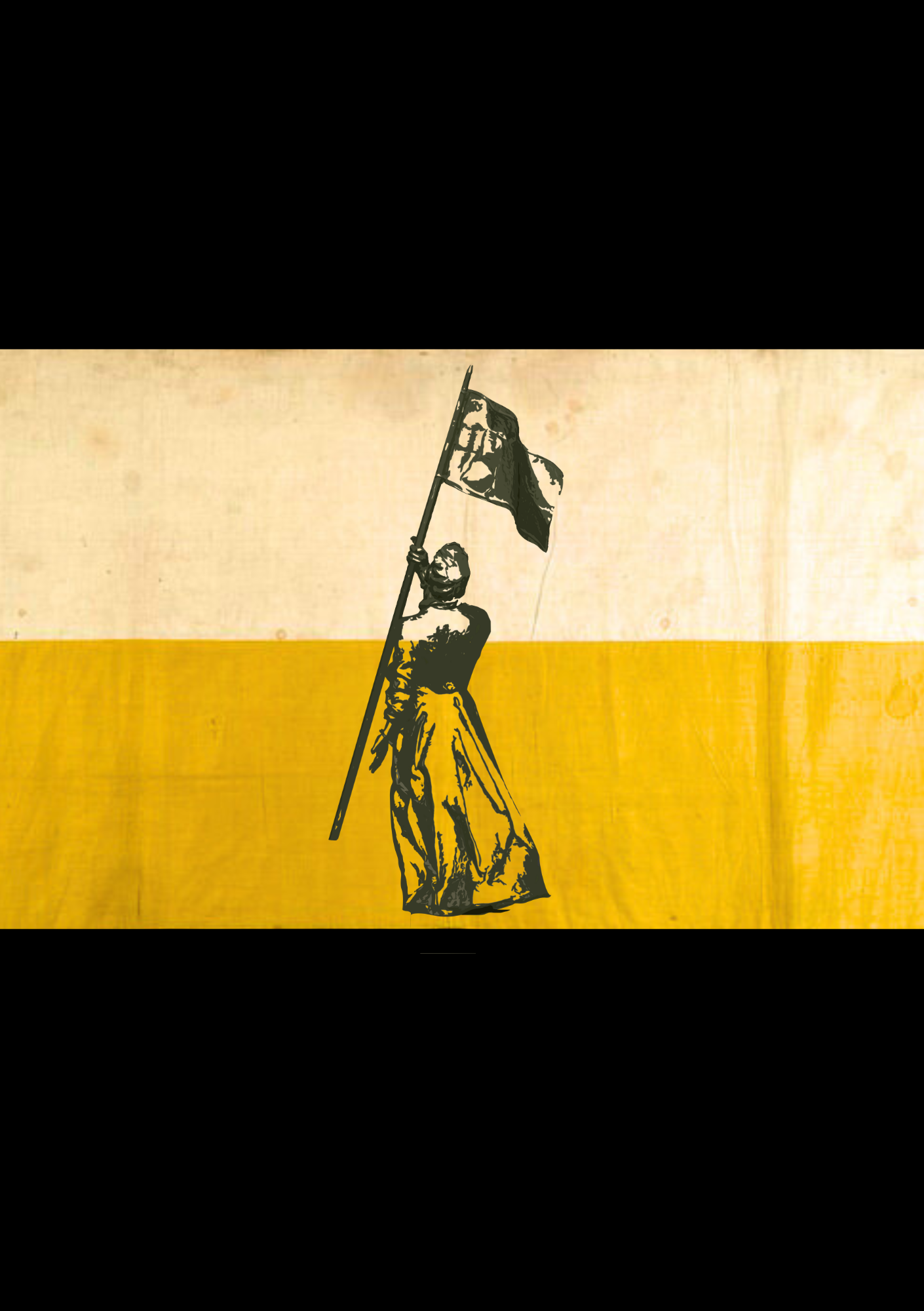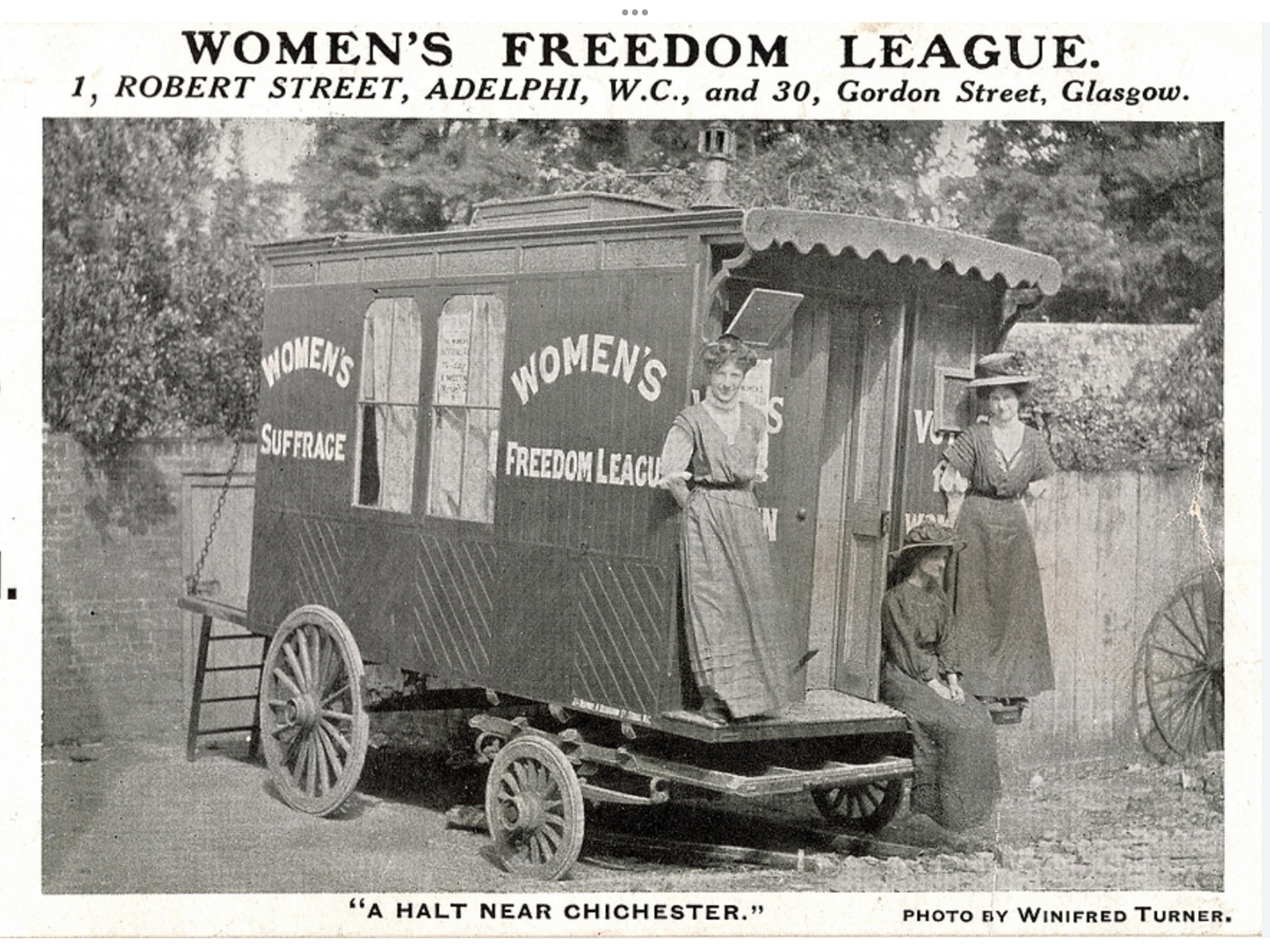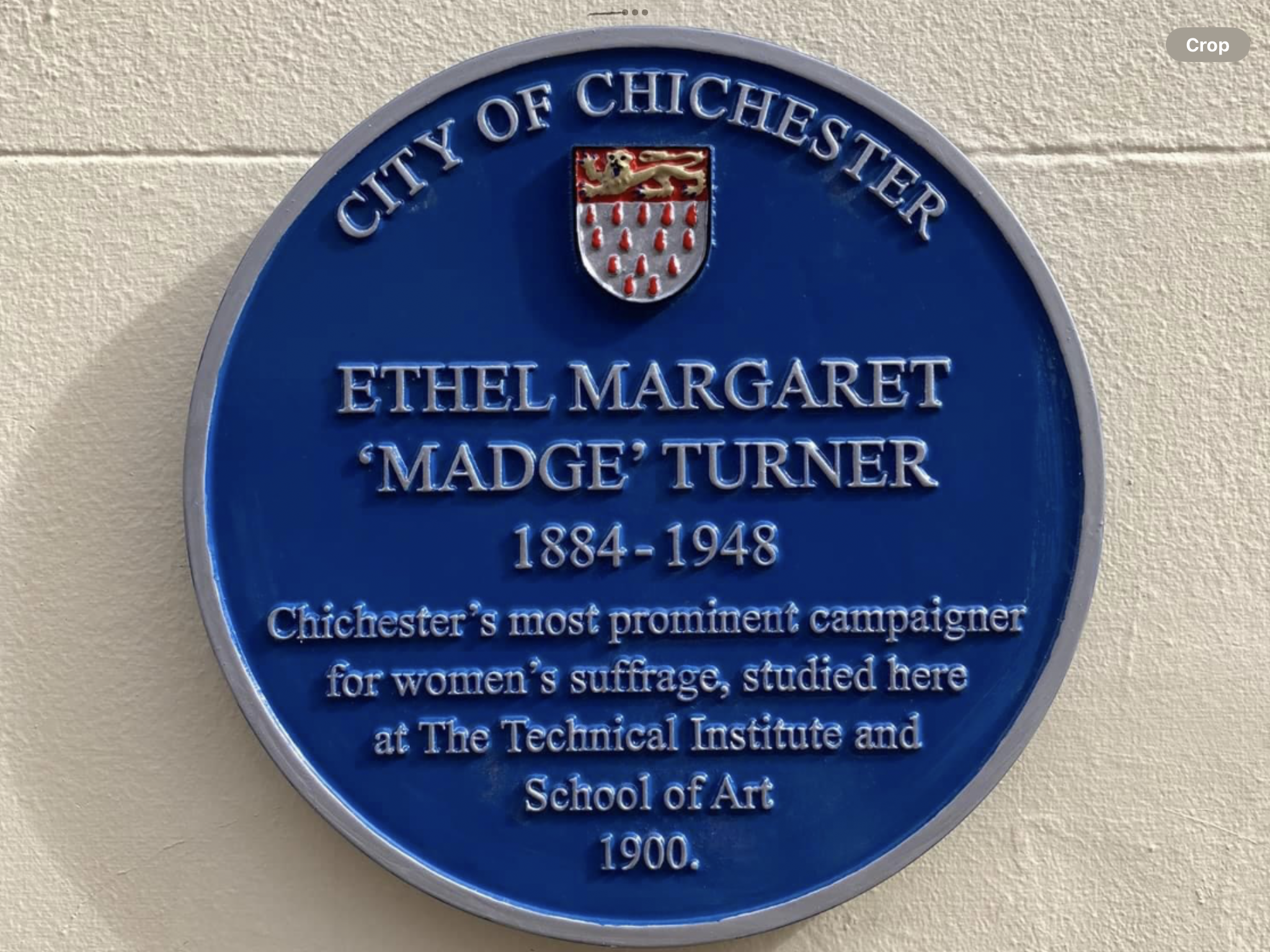
Born Edith Madge Turner in Chichester, 1884
“A brave and tenacious speaker”
Lifelong Campaigner
Writer
Editor
Lifelong Campaigner Writer Editor
Madge was an early member of the Women’s Freedom League, a militant but non-violent suffrage group, founded in 1907. In February 1909, Madge was elected to carry the Easebourne Branch’s Banner at a march on Downing Street. When she was arrested for ‘wilfully obstructing the police in their duty’ and sentenced to 14 days imprisonment in Holloway.
In this photograph, taken by her sister, Madge stands on the right with Muriel Matters on the left
Madge Campaigned for women and children’s rights
Madge’s lifelong activism began in Chichester, where she co-founded a women’s Liberal group in 1905 and spoke during the 1906 General Election campaign in support of women’s suffrage. She joined the Women’s Freedom League (WFL) soon after its founding in 1907, a militant but non-violent suffrage organisation.
In February 1909, The experience strengthened her commitment to “the cause,” and she spoke publicly about it in meetings across Sussex. Described as a “brave and tenacious speaker,” Madge went on to become a paid WFL organiser, setting up branch shops, canvassing, and arranging campaigns in Gloucester, London, and Scotland – where she coordinated the influential Clyde Campaigns.
After the First World War, her focus shifted to broader social justice. From 1919 she served the Association for Moral and Social Hygiene (AMSH), which campaigned against child exploitation, prostitution, and trafficking of young girls. Rising through the ranks, she became Secretary in 1941, a post she held until retiring in 1945.
Madge the Author and Editor
From 1909 – 1913, Madge contributed regularly to The Vote, the Women’s Freedom League’s magazine.
As part of her role at the Association for Moral and Social Hygiene, Madge edited its journal, The Shield, and co-authored a book and wrote two pamphlets on Josephine Butler, the Victorian feminist and social reformer who campaigned for women’s suffrage, the repeal of the Contagious Diseases Act, the abolition of child prostitution and an end to human trafficking (the AMSH was renamed the Josephine Butler Society in 1962).
Her book, Common British Flowers, was published posthumously in 1948.


